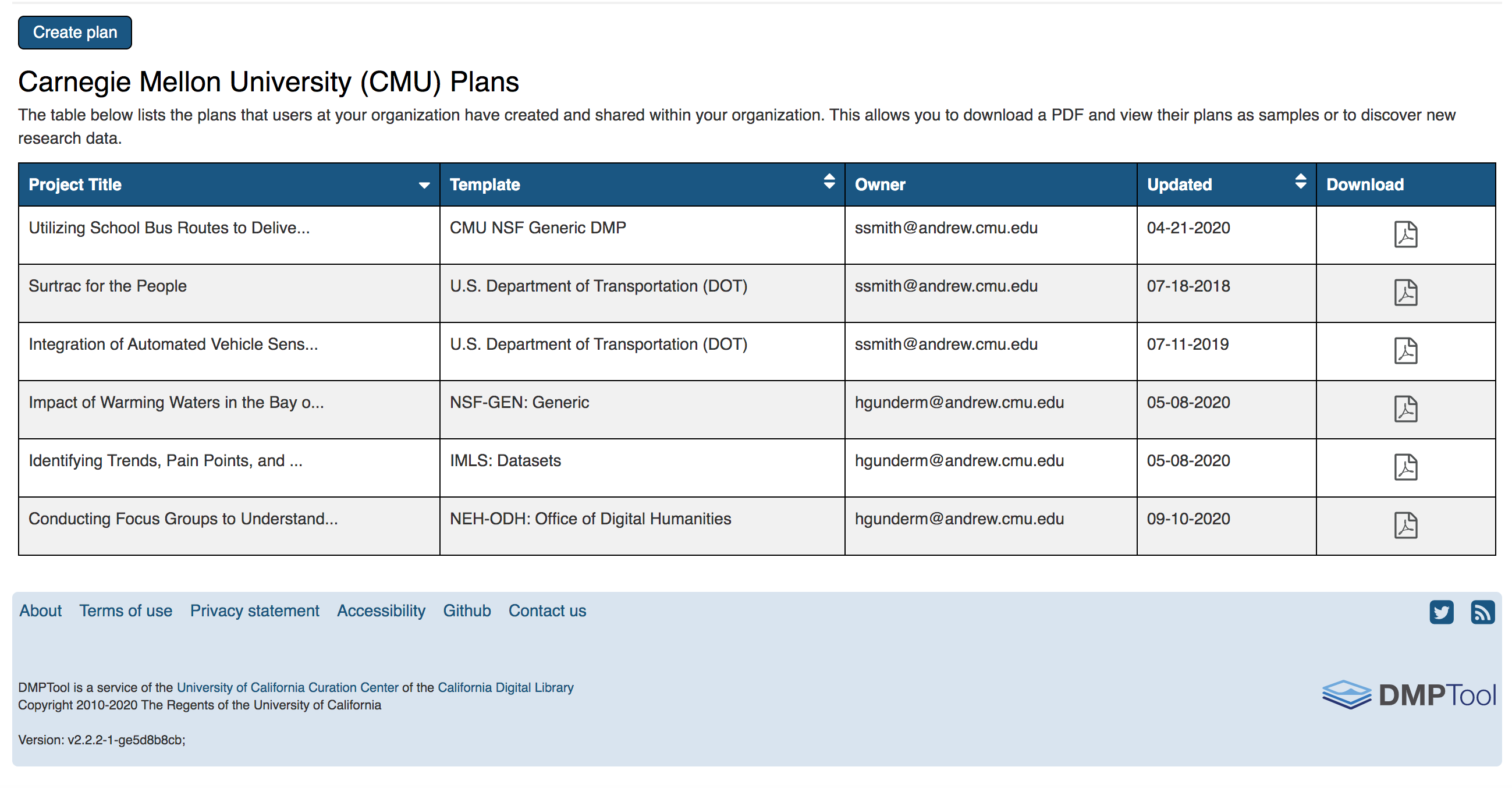
Full-disclosure to my readers: I am writing this post in the midst of a multi-day migraine, but I've got a cup of oolong tea with a healthy dose of caffeine and I'm excited to be sitting down to write to you all about something that I really love: data management plans (hereafter DMPs). Yeah, okay - at first glace you might read that and say, "Really? You love DMPs?" But hear me out! These short documents, usually two pages or less, can completely transform how you engage with all the lovely data sources in your research. They also can help you get awarded grants and satisfy mandates by funding agencies. What's not to love?
A large part of my job is actually working with researchers who are applying for grants and need to write a DMP in order to, in plain terms, convince the funding agency that their project is worth the investment and they will take care of all the data throughout the project! Think of them as a love letter to your data - you are writing down how you will collect, manage, store, and share the data in a way that is ethical and organized.
I am always happy to share DMPTool with our researchers, a platform that provides DMP templates for dozens of major funding agencies. Templates are great because they provide a clear outline of what you need to include in something (in this case, what you should include in your DMP based on the funding agency's requirements). But, I always find that having samples of what something should look like to accompany the templates is really useful! Think of it with food recipes. I could have a recipe that shows me step-by-step how to make vegan creme brulee french toast (by the way, it's amazing - email me for the recipe!), but it's also nice to see a picture of what the end product should look like. So, in this issue of Tartan Datascapes, I am thrilled to share that CMU Libraries now offers three new sample DMPs available to members of the CMU community!
When you log into DMPTool with your CMU credentials and scroll down to the bottom of the page, you will see 'Carnegie Mellon University (CMU) Plans" and the following list of open plans:

The bottom three plans showing "hgunderm@andrew.cmu.edu" as the owner are the samples created specifically with you, the CMU community, in mind! Below, I'll give a brief summary of each, but I definitely recommend logging into DMPTool and checking out the plans yourself!
1. National Science Foundation (NSF) - Generic Plan: "Impact of Warming Waters in the Bay of Fundy on Lobster Fishery Health"
This DMP outlines an actual project I worked on in the past involving surveying lobster populations in coastal Maine! While I don't miss the seasickness from the lower Bay of Fundy, writing this DMP brought back great memories of long days on lobster boats, the sweet smell of salty ocean air, and wearing Grundéns fishing gear. This DMP also provides a great example of a research project with multiple sources of field-based data that goes through transformation from raw to secondary data!
2. Institute of Museum and Library Services (IMLS) - Datasets: "Identifying Trends, Pain Points, and Opportunities in Research Data Management Education through Twitter"
This DMP is not from an active project but rather something I'd love to explore at some point, so writing out this sample was really great for getting my thoughts organized on how I might start this research! Remember, you can make a DMP even if you aren't applying for funding - it's a great way to map out your research!
3. National Endowment for the Humanities (NEH) - Office of Digital Humanities: "Conducting Focus Groups to Understand Doctor Who's Role in Geopolitical Understanding" (made in collaboration with Dr. Emma Slayton of CMU Libraries)
All my seasoned Tartan Datascapes readers will know that I simply have to include a Doctor Who reference in each blog post! Taking my past research on conducting focus groups with Doctor Who viewers and mapping it to a DMP in DMPTool was super fun, and helped me look back at how I could have better managed my data as a Ph.D. student working on the project. It's also a great example of how to speak about qualitative and ethnographic research data in a DMP!
Not seeing a sample plan for the organization you'd like to apply for funding from? Stay tuned! We will be adding more sample DMPs in the future, including for the United States Department of Energy (DOE), the Belmont Forum, and the United States Department of Transportation.
I wanted to take a moment to also describe the kind of support you can receive from CMU Libraries for creating DMPs. The quick answer is that we offer a lot of support! Through the University Libraries Data Services team, we can review your DMP and ensure that you meet all the requirements of your particular funding agency, and help you work through technical challenges along the way. Just email us and we'll get the conversation started! Also, I'm happy to share that I will be teaching a virtual workshop called "Writing an Effective Data Management Plan" on October 6th from 6:00-7:00pm EST, so register if you are interested to learn more about data management planning for grants, personal research, etc.!
Important Happenings in Research Data Management at CMU Libraries:
We have some lovely upcoming virtual workshops at CMU Libraries (you can also browse our full list of workshops for the remainder of the semester), many of which can help you learn new tips and tricks for data collection, analysis, and management. Here's a few that have a particular Tartan Datascapes-flavor, and you can click on the title of each workshop to register:
6:00pm - 7:00pm Tuesday, September 22, 2020
12:00pm - 1:00pm Thursday, September 24, 2020
6:00pm - 7:00pm Tuesday, September 29, 2020
- Writing an Effective Data Management Plan
6:00pm - 7:00pm Tuesday, October 6, 2020
- Cleaning Untidy Data with OpenRefine
12:00pm - 1:30pm Thursday, October 8, 2020
- Data Management for the Humanities
6:00pm - 7:00pm Tuesday, October 13, 2020
- Getting Started with Open Science Framework
12:00pm - 1:00pm Thursday, October 15, 2020
- Learn Data Management through Pokémon!
6:00pm - 7:00pm Tuesday, October 27, 2020
- Reproducible Plotting with Python in Jupyter Notebook
4:00pm - 6:00pm Monday, November 2, 2020
- Introduction to Data Literacy: Finding the Truth in Visualizations
12:00pm - 1:00pm Thursday, November 5, 2020
- Using Overleaf at CMU: The Easy to Use, Online, Collaborative LaTeX Editor
6:00pm - 7:00pm Tuesday, November 17, 2020
- Introduction to Making Data Visualizations Using R
6:00pm - 7:00pm Tuesday, November 19, 2020
And of course, please send me an email if you'd like some help on your journey as a researcher/scholar/awesome human being here at CMU. Remember, we all use data, regardless of our discipline. If you think something might be data, you are likely correct and I can help you develop good habits for managing it! Also, you can also have your own work featured in Tartan Datascapes if you are a student, staff, or faculty at CMU by filling out a Google Form to get in touch.
